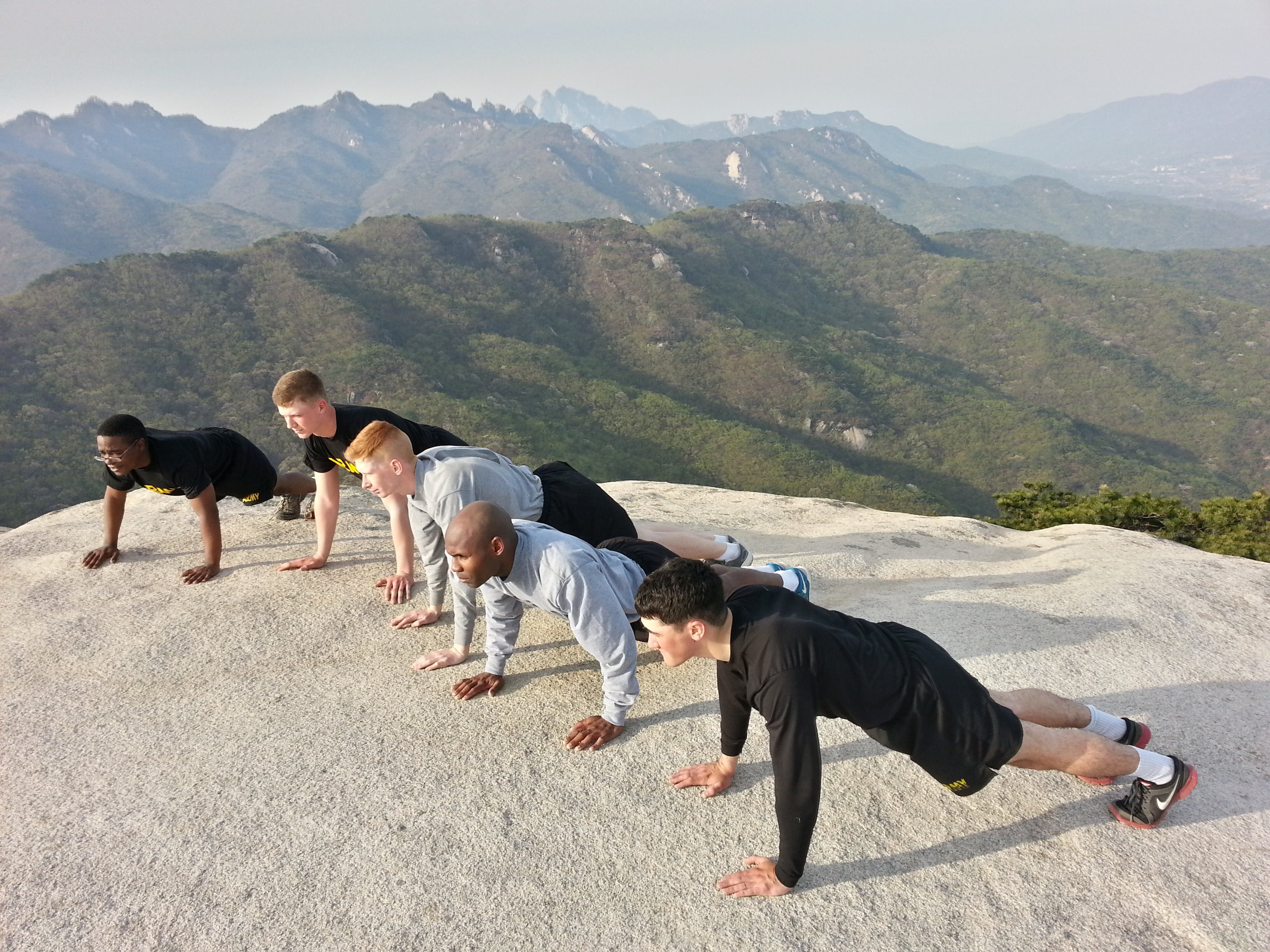As the Army cracks down on physical fitness across the force, yet another promotion board has found discrepancies in NCO height and weight records.
In its report, the most recent E-7 promotion board found "numerous NCO files that indicated challenges with maintaining physical fitness standards." This report comes less than a year after a promotion board examining the files of first sergeants and master sergeants found senior NCOs were gaining weight to an alarming degree while miraculously getting taller.
Sergeant Major of the Army Dan Dailey, who is a big proponent of physical fitness, called the issue "serious business."
"The Army's got to know that we're looking at this stuff," he said, when Army Times asked him about the E-7 board's report. "You will not get promoted if you're not physically able to lead your soldiers. If you can't pass the APFT and height and weight, it's not going to happen."
Dailey, who was sworn in Jan. 30 as the Army's top enlisted soldier, in March issued a memo to commanders across the force, taking them to task for allowing fitness standards to slide among their troops.
"One of the most important things that we do every day is typically one of the first things that we do each morning, that being physical fitness training," Dailey wrote in the letter sent to senior sergeants major across the Army. "Yet as I travel to various locations across the Army, I find fewer and fewer soldiers actually conducting physical training."
The time set aside in the morning for PT is the "sacred hour," Dailey wrote.
He reiterated his call during an Oct. 5 interview with Army Times.
"We've got to get the Army back in shape," he said. "We've got to get leaders out there leading PT every single day."
The E-7 board, which wrote its report in June, found "many files had inconsistencies" in height/weight on "consecutive" noncommissioned officer evaluation reports. Some soldiers had height measurements that "would greatly fluctuate (usually increase)," giving them a corresponding increase in weight measurement. Others showed NCOs were either enrolled in the Army Body Composition Program or had Army Physical Fitness Test failures.
It went on to recommend raters ensure height and weight standards are consistent across rating periods. The board also recommended the Army continue to chapter NCOs who don't meet the Army standard.
Army regulations require soldiers who have two consecutive APFT failures to be separated, if they have no medical limitations. Soldiers who fail to meet the body fat standards are subject to involuntary separation. The soldier can be separated for failure to make satisfactory progress in the Army's weight control program, or for not meeting the standards for the 12 months after leaving the program.

Sergeant Major of the Army Dan Dailey, here conducting PT with soldiers at Redstone Arsenal in May.
Photo Credit: Sgt. 1st Class Michael R. Zuk/Army
Soldiers are evaluated for height and weight about once every six months, typically during their APFT.
The Army is "very much doing something about this," Dailey said.
"I've sat on promotion boards. I've seen some of these inconsistencies," he said, although he said the last board he sat on, before he was the SMA, had "some," not "many," inconsistencies.
"It's a problem," Dailey said. "Physical fitness is a problem in the Army."
That's why the Army has unmasked height, weight and APFT scores so promotion boards can see them when reviewing a soldier's file, he said.
In addition, soldiers now are measured and must take the APFT at the start of every professional military education course, Dailey said. Education is now a requirement for promotion under the Army's new STEP strategy, or "select, train, educate and promote."
Under STEP, soldiers must have the right level of education before they can be promoted to the next rank.
"That stuff is important to what we do every day as soldiers," Dailey said. "We've got to get after it."

"The word is out that PT is important," the Army's top enlisted man told Army Times. Here, soldiers get ready to do pushups at the top of a 1,500-foot mountain in South Korea during a pause in a six-mile training run.
Photo Credit: Master Sgt. Jason B. Baker/Army
Another way the Army is studying to reinforce the importance of physical fitness is a proposal to add height, weight and APFT scores on Army Form 1059, the Service School Academic Evaluation Report.
The 1059 in its current form consists of a series of block checks to determine whether a student met or exceeded the standards required for any particular course.
A proposal in the works at Training and Doctrine Command asks to include height and weight, APFT data as well as class rankings and a grade-point average on a new 1059, Dailey said.
"That which you grade becomes important, so it needs to be graded all the time," he said. "We've got to get after it."
Dailey also called for NCOs to be honest when grading or measuring soldiers.
"If someone's measuring you and not giving you your accurate [measurements], absolutely, it's 100 percent an integrity issue," he said. "I've asked sergeants major to leave the Army for falsifying height/weight data. We have to make it known there is absolutely no tolerance for not accurately reflecting someone's height, weight and APFT data. Noncommissioned officers are charged with maintaining standards and discipline. If a soldier is 69 inches tall, they're 69 inches tall."
The importance of PT is spreading across the Army, Dailey said.
"The word is out that PT is important," he said. "The true fact is you're not going to get promoted anymore if you can't pass your PT test."
Michelle Tan is the editor of Army Times and Air Force Times. She has covered the military for Military Times since 2005, and has embedded with U.S. troops in Iraq, Afghanistan, Kuwait, Haiti, Gabon and the Horn of Africa.




